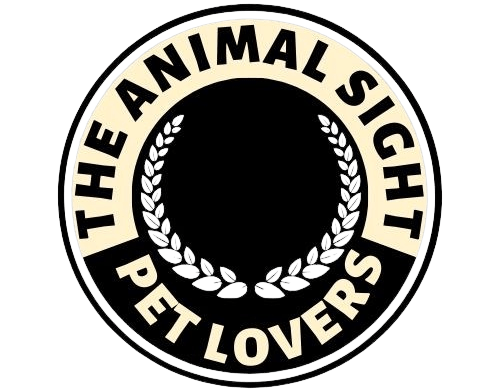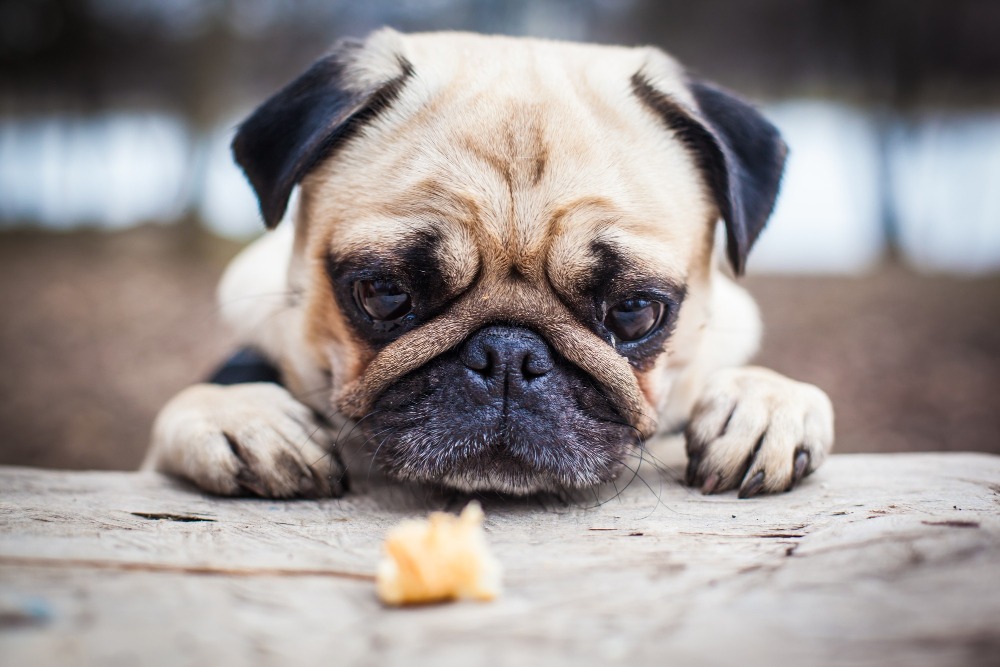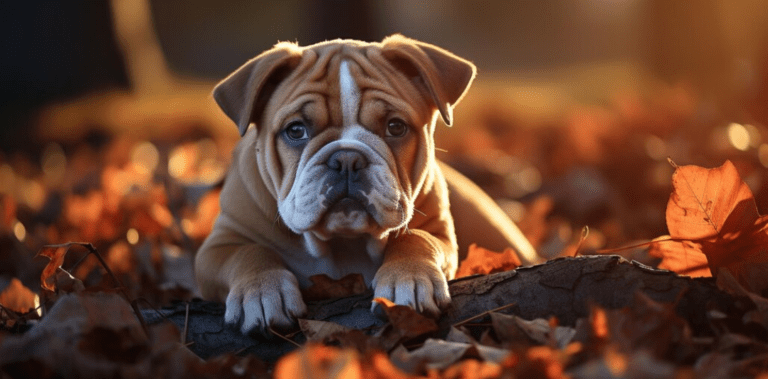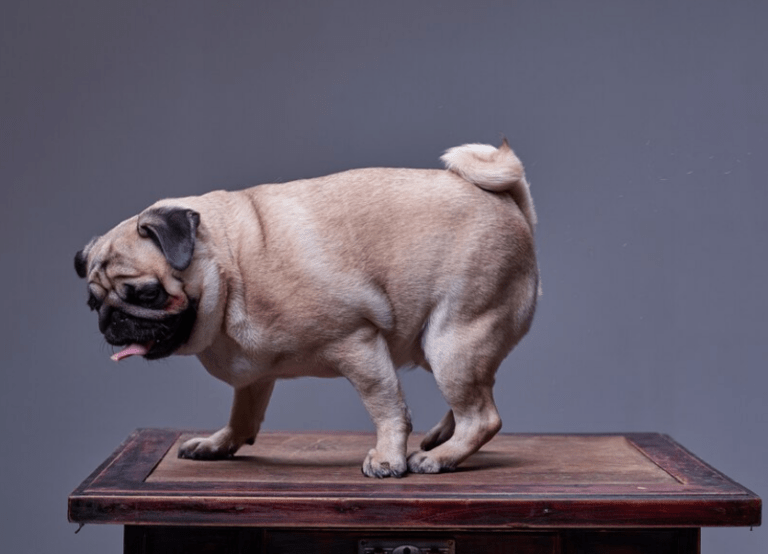Why Won’t My English Bulldog Eat?
If you’re an English bulldog owner, you know that mealtime can be one of the most anticipated moments of the day. But what happens when your furry friend suddenly loses interest in their food? It can be concerning and frustrating for any pet parent to see their beloved companion not eating. Here, we’ll explore some common reasons why your English bulldog might not be eating and provide tips on how to get them excited about mealtime again. So grab a treat, and let’s dive into the world of English bulldog nutrition.
Why Is My Bulldog Not Eating His Food?
If you’ve noticed your English bulldog not eating its food, there could be several reasons. One common cause is an upset stomach. Bulldogs are known for having sensitive digestive systems and may experience diarrhea or vomiting from certain foods or changes in diet.
Stress can also play a role in a bulldog’s appetite. Changes in routine, new family members or pets, loud noises, or traveling can all cause stress for your pup and lead to loss of appetite.
If none of these seems to be the issue with your bulldog’s lack of appetite, then it might be time to visit the vet, who will conduct different tests, including blood workup, etc., so they can diagnose what’s causing this problem.
Best Nutrient-Rich Foods For Your English Bulldog
As a pet owner, ensuring that your English bulldog is getting the proper nutrients in their diet is essential. This can be achieved by feeding them nutrient-rich foods.
One of the best nutrient, rich foods for English bulldogs is lean protein sources such as chicken, turkey, and fish. These proteins are rich in amino acids and help build strong muscles while keeping your dog full longer.
Fruits such as blueberries or bananas are also great options as they contain antioxidants that can help protect against disease while providing natural sugars to keep energy levels up throughout the day.
Always check the ingredients list before buying commercial dog food options. Quality brands use high-quality meats like lamb or beef mixed with vegetables like peas or lentils to provide optimal nutrition for dogs at all stages of life.
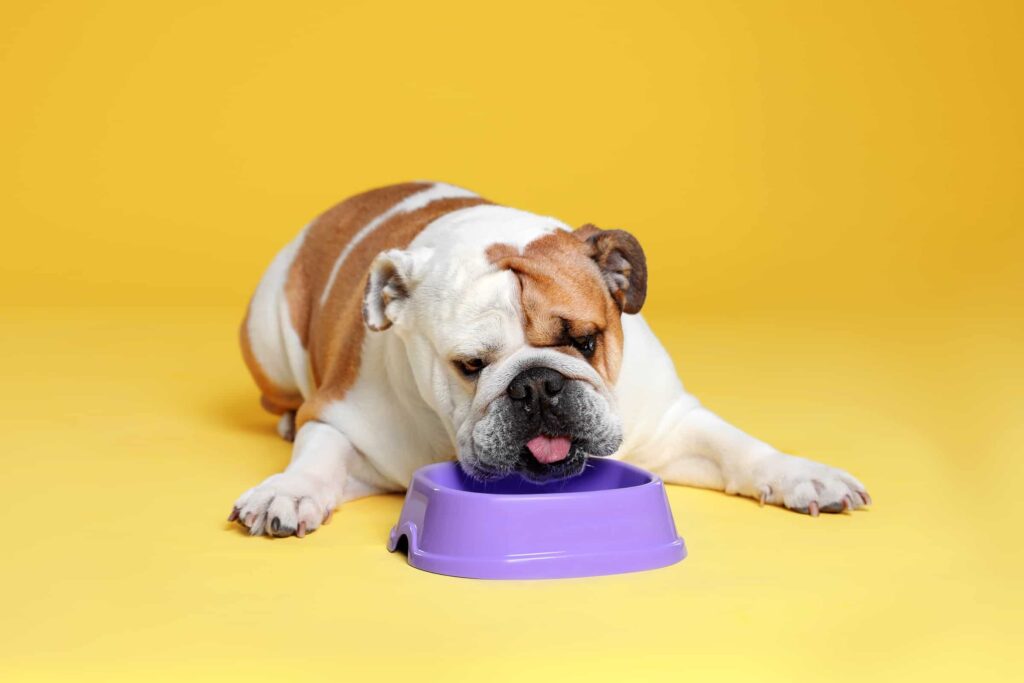
Best Protein For English Bulldogs
English Bulldogs require a high, quality protein diet to maintain their muscle mass and overall health. When choosing the best protein source for your Bulldog, you should consider the digestibility of the protein and whether it’s animal-based or plant-based.
Animal-based proteins are highly recommended for English Bulldogs because they contain all the essential amino acids that your pet needs. Chicken, turkey, beef, lamb, fish, and eggs are excellent animal, based protein sources.
Plant-based proteins like soybeans and lentils can also provide quality protein to your bulldog. However, it is essential to note that dogs may not as easily digest these proteins as animal-based proteins.
When reading dog food labels, look for named meat sources such as “chicken meal” rather than generic terms like “meat meal.” This will ensure you know exactly what meat is in your dog’s food.
Protein from grain sources such as corn gluten meal or wheat gluten should be avoided since they are less nutritious than natural meat protein sources. Additionally, some dogs have allergies or sensitivity issues with grains, so avoiding them ultimately can help prevent potential digestive problems later.
Should English Bulldogs Have Dairy
Many dog owners love treating their furry friends with a bit of dairy. However, when it comes to English Bulldogs, it’s essential to consider whether or not they should have dairy in their diets.
Dairy products like cheese and yogurt are often high in fat and lactose, which can be difficult for dogs to digest. This can lead to digestive issues such as bloating, gas, and diarrhea.
Although some English Bulldogs may tolerate small amounts of dairy without any problems, it’s best to avoid giving them large portions or making it a regular part of their diet. If you give your bulldog some cheese or yogurt as an occasional treat, ensure it is low-fat and unsweetened.
Ultimately, while small amounts of certain types of dairy might be okay for your Bulldog on occasion if there are no signs that he/she is lactose intolerant, generally speaking, they should not have much, if any, in their diets.
